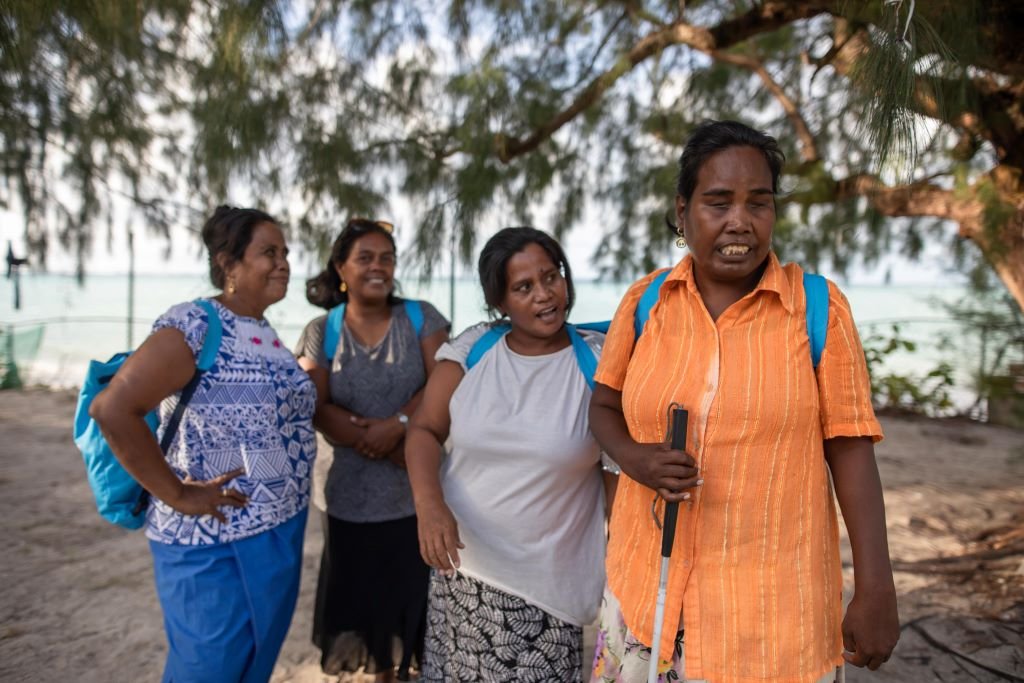INSIGHTS ON DISABILITY AND SOCIAL PROTECTION IN THE PACIFIC AND TIMOR-LESTE
Insights on disability and social protection in the Pacific and Timor-Leste
The rising prevalence of disabilities in the Pacific and Timor-Leste, driven largely by non-communicable diseases and people living longer, underscores the need for inclusive social protection.
A new Partnerships for Social Protection (P4SP) brief, Disability and social protection in the Pacific and Timor-Leste, explores the key findings and insights on this topic.
The brief draws on P4SP’s Evidence Review: Social Protection in the Pacific and Timor-Leste that examined 242 publications, of which 49 discuss disability and social protection.
Progress and ongoing challenges
Social protection for persons with disabilities is gradually expanding across the Pacific and Timor-Leste.
Many nations, including Fiji, Kiribati, Nauru, and Samoa, have introduced tax-financed disability benefits, aligning with the UN Convention on the Rights of Persons with Disabilities (CRPD).
“The wide adoption of the CRPD does signify a growing recognition of the importance of providing inclusive social protection for people with disabilities,” states the brief.
However, countries across the region are at different stages of implementation.
“Some of the most populous countries, such as Papua New Guinea, Solomon Islands and Vanuatu, do not have any programs to provide tax-financed benefits to persons with disabilities.
“Furthermore, there are a wide variety of barriers that can prevent persons with disabilities from accessing social protection, even when disability-specific programs are in place.”
Best practices in disability-inclusive social protection
Despite these challenges, some good practices are emerging, as seen in Fiji.
In 2018, Fiji implemented a new social protection act designed to reduce barriers to coverage.
The country also introduced the bus travel credit scheme for persons with disabilities and a new Disability Allowance Scheme. Notably, the latter uses home-based assessments that consider both functional limitations and support needs, rather than relying solely on medical criteria.
These overarching design and program changes have expanded the reach of disability-targeted benefits in Fiji.
“The number of people registered for disability-targeted social protection programs has increased more than fourfold, from 26,070 people in 2015 to 113,595 people in 2018.”
The emerging body of evidence on disability-inclusive social protection points to the importance of effectively involving people with a disability in program design, enhancing outreach efforts, and ensuring benefits are compatible with work and other support mechanisms.
Future research and directions
The brief identifies several research gaps, particularly regarding the impact of existing programs on people with a disability.
There is a need for more research on how social protection can address multiple vulnerabilities, the role of informal social protection systems, and the effects of climate change on people with a disability.
“These ongoing research, evidence and evaluation activities should involve persons with disability themselves. This will provide context-based learnings that can be used to support broader, theoretical guidance on best practice.”
More than two-thirds of the publications on social protection and disability are authored by multilateral organisations, with less than 10 percent published by Pacific-based bodies.
The brief recommends supporting Pacific and Timorese individuals and organisations to lead research work on social protection.
“This will help to centre local voices in the discourse and ensure that contextual factors are appropriately recognised and reflected in the research.”



